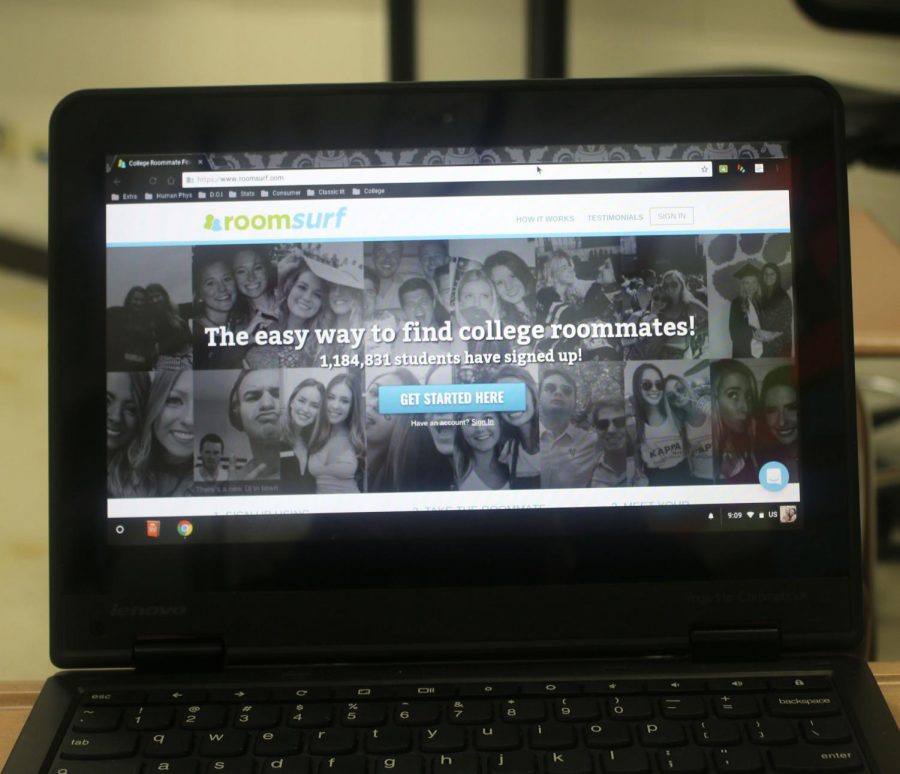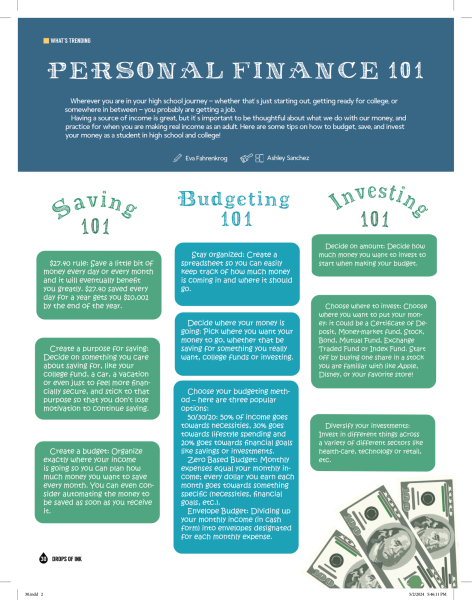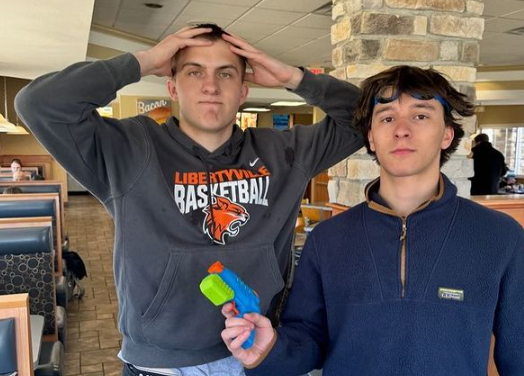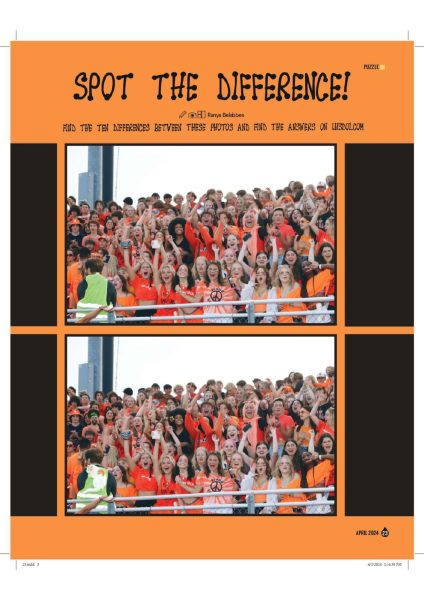Speed Dating for Roommates
The process of finding a roommate has shifted from randomly generated to requesting a specific roommate ahead of time. Roomsurf, a website that connects students from all over the country, is an example of a website that has contributed to this shift.
The summer before going off to college can be a chaotic whirlwind of planning and emotions for some seniors. While many are excited for the new freedoms ahead, the fear of living with someone new begins to creep in.
In fact, a study conducted by the University of North Carolina at Charlotte discovered that roommate problems are the second-largest stressor for college students. In a society dominated by technology and the desire for concrete answers, the traditional way of receiving a random roommate has dramatically shifted to carefully selecting someone ahead of time.
Social media has exploded in recent years, connecting people from all differents regions and backgrounds; these people sometimes have something as little as one aspect in common. For 18-year-olds, this could include their future university and potentially lead them to not only become friends, but roommates.
Multiple apps on the market aim to link future college students together in the hopes of finding their potential roommates. These programs match students based on a variety of qualities such as lifestyle, study habits, course studies and even sleeping preferences. One of the more popular social media platforms for this search is Facebook.
LHS senior Grant Bair is one of the many incoming college students who used it to find his future roommate.
“After I decided I was going to Purdue, I joined the Facebook group chat and posted some pictures and a description about myself,” explained Bair in an email interview. “I had a bunch of different guys reach out to me and after getting to know them a little bit, I decided to room with a kid who was similar to me and that I knew I could live with.”
Having communicating multiple times through text messages, Snapchat and few times on the phone, Bair and his future roommate — who is from St. Charles, Illinois — both wanted to find someone with similar interests.
“I didn’t want to go random because I wanted to make sure I knew my potential roommate at least a little bit before hand. I’ve heard of a lot of people who haven’t liked their roommates, and I felt like I could avoid that by not going random,” said Bair.
Many future college students like the system and freedom of being able to find a possible roommate before leaving for school in the fall.
According to The Washington Post, housing officials say that by giving freshmen more say in their living arrangements, it can result in fewer roommate conflicts. However, other college officials worry that students are focusing too much on the wrong qualities in these searches – TV shows instead of cleaning preferences, funny high school stories instead of sleeping habits.
USA Today claims that Facebook and other social media platforms only show three components of a person: their appearances, the information they choose to share through statuses and the way that other people interact with them on their posts. This can lead to the search for a roommate to become more of an online speed-dating process rather than a way to actually get to know someone: basing a decision off of pictures and a small bio, then making a judgment with one click. College officials mentioned by USA Today believe that a social media platform cannot possibly encompass the full scope of who someone is as a person or what it will be like to live with them.
Someone with first-hand experience with this struggle is senior Maggie Cayce, who originally started out her search for a roommate online.
“It’s just hard because so many girls can be so different online than in person,” explained Cayce. “They can be portrayed one way and then be completely opposite, but you would have no idea. It’s hard to get a good read on people.”
Cayce was steered away from going random after hearing from her older sister, Molly, and her bad experience of a year full of conflicts with her first roommate. It was then that Cayce began talking with her friend and fellow LHS senior, Mallory Kimpler, about possibly sharing their journey to the University of Iowa. They happily decided that they will become roommates in the fall for their freshmen year.
“For me, I’m going to have somebody that I’m comfortable with and who I know will for sure understand [me]. I would say the only downfall is if it doesn’t work out, that would affect our friendship that we’ve had, but I doubt that will happen,” said Cayce.
It’s rare, but still prevalent for high school students to room together for their college years. While high school relationships and social media may seem useful and less risky to find college roommates, some experts believe it actually defeats the purpose of leaving comfort zones to bond with other new people. As mentioned in The Washington Post, these college officials believe that by randomly assigning roommates, it helps ensure that students are exposed to different viewpoints, as students making the decision on their own tend to pick people of the same race, social background or hometown.
Austin Becker is a senior at LHS who decided to stay away from the current trend of searching for a roommate early. His hope is to create new relationships with different people at Indiana University in the fall.
“I felt like doing random would help me meet new people there because if I went with somebody that I already knew here, then [I] wouldn’t be meeting as many people as [I] possibly could be,” explained Becker. “If you already know those people, then you can just meet up with them regardless of where you’re living.”
Some schools have students who choose to go random fill out a survey about one’s self and match students based on likes and dislikes. While IU doesn’t have a similar form, Becker is planning on housing in one of its Living Learning Centers, one that is specifically for students in the renowned Kelley School of Business. Even though he would still be randomly assigned an unknown roommate, the pool of potential students would be narrowed down and include people of the same area of study.
“I do definitely have some fears that I’m going to end up with somebody who is just going to make my life a lot harder, but I just want to stay positive about it because I don’t want to go into college thinking badly about what is going to happen,” said Becker.











